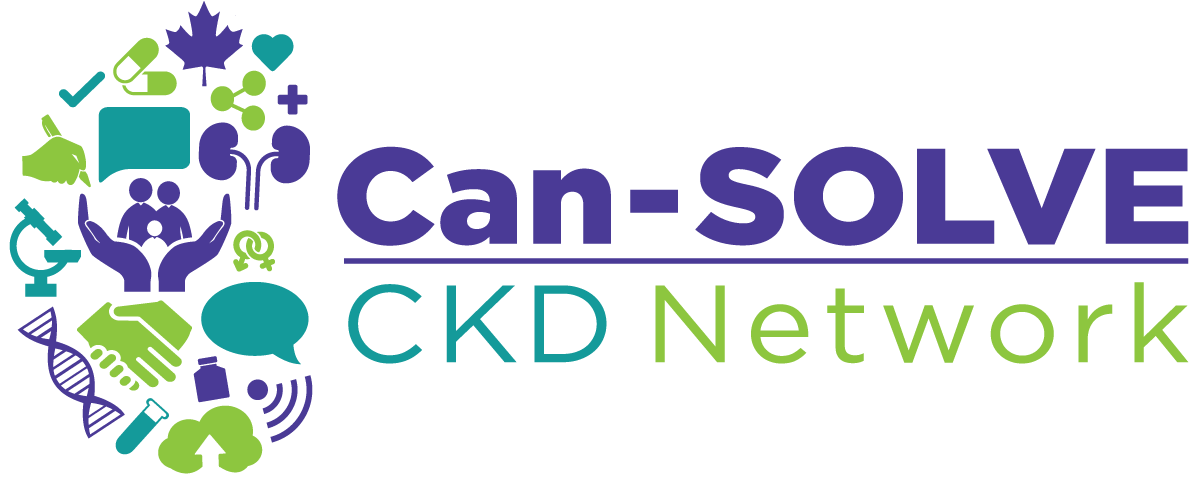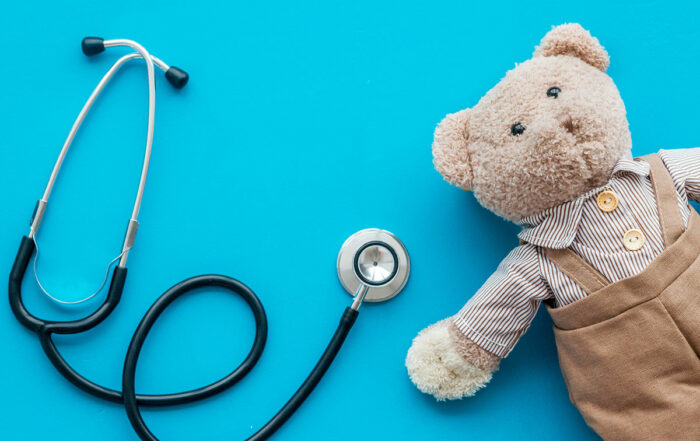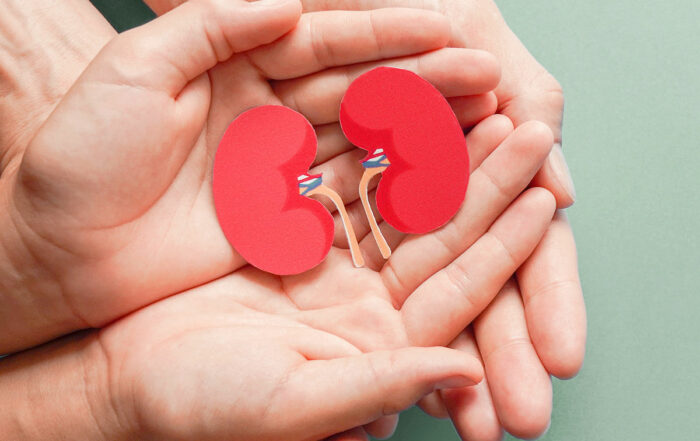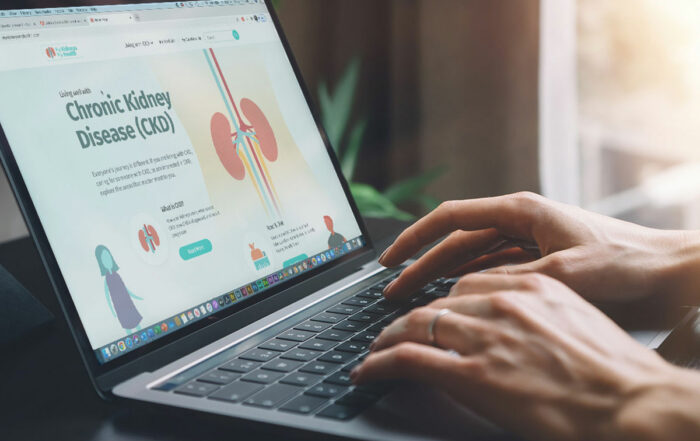
Living well with kidney disease means managing dietary needs, mental health, medications and more – all of which can vary greatly for each person.
Can-SOLVE CKD researchers are leading an initiative that aims to support patients in living their best lives. After a few years of development, the research team is ready to unveil its new online self-management tool: My Kidneys My Health.
The interactive website covers all of the most important self-management topics identified by kidney patients and professionals. This includes information about kidney disease, diet, medications, symptoms, mental and physical well-being, finances, work and education, and travel. What’s more, the website allows patients to create their own, individualized self-management notes – for example, questions to bring up with their health care professionals.
As with all Can-SOLVE CKD projects, patient partners were heavily involved in the design and implementation of My Kidneys My Health. This includes Dwight Sparkes, whose first-hand experience highlights why the tool is important.
Six weeks after Sparkes had a kidney biopsy in 2014, his doctor diagnosed him with chronic kidney disease. “My head just started spinning,” says Sparkes. “[My doctor] said, well I want you to cut out salt, and he sort of sent me on my way.”
Over the next three years, Sparkes learned the ropes of living well with kidney disease. In 2016, he had the opportunity to join the team behind My Kidneys My Health and instantly realized the importance of the project. Whereas Sparkes had to go to multiple sites to collect disjointed bits of information, he describes My Kidneys My Health as “one-stop shopping” for living well with kidney disease. “It’s a comprehensive self management tool designed by patients for patients,” he explains, noting that he wishes he had access to such a site in the early days following his diagnosis.
To get started in creating the tool, the research group conducted an environmental scan of the self-management support already available to patients in order to identify gaps in support. As well, they convened a group of patients, caregivers, and health professionals (nurses, dietitians, pharmacists, policy-makers, primary care physicians, social workers, and nephrologists) to identify content and other features that should be included in the tool.
The workshop was a valuable opportunity to understand the self-management priorities of patients. “They told us that they wanted support through education on specific topics, [links to tangible support resources], and a mode of delivery that is accessible, relevant, timely and tailored,” explains Dr. Maoliosa Donald, a lead researcher involved in the project.
She notes that, as a result of this detailed approach to developing My Kidneys My Health, the tool has succeeded in addressing a lot of self-management gaps, including: some topics that aren’t covered on other websites, a mental health screening tool, and interactive media, including videos.
Before the tool was officially launched, it had already been gaining in popularity. Paul Watson, 62, has lived with polycystic kidney disease – a condition with difficult symptoms to manage and an uncertain prognosis – for his whole life. When he heard about the My Kidneys My Health project on Twitter, he enthusiastically reached out to the group and joined as a patient partner.
“I spend a lot of time between doctors’ appointments Googling for answers, or at least a hint of what to expect at the next turn,” explains Watson, noting how hard it can be to understand what information on the Internet is good or bad.
“I wanted to help with this website because it has enormous potential as a gathering place for patients and medical professionals to share reliable information on a broad range of subjects,” he says. “I hope it will help ease a lot of suffering.”
Sparkes is also excited about the potential for My Kidneys My Health to have a positive impact. “The whole reason I got involved with Can-SOLVE CKD is to improve the lives of people with kidney disease, and I think this website is going to go a long way to achieving that,” he says.
Although World Kidney Day marks the official launch of My Kidneys My Health, the team will be continuing to explore ways to improve the tool. Donald says, “We are looking at potential changes that would address feedback from study participants, such as integrating culturally specific information, linking with peer support programs, and hopefully continuing to expand on the website’s interactive features.”
“The whole reason I got involved with Can-SOLVE CKD is to improve the lives of people with kidney disease, and I think this website is going to go a long way to achieving that.”
Dwight Sparkes
More Research Impact
Connect with us!
Subscribe to learn more about what we do, why it matters, and how you can get involved!
